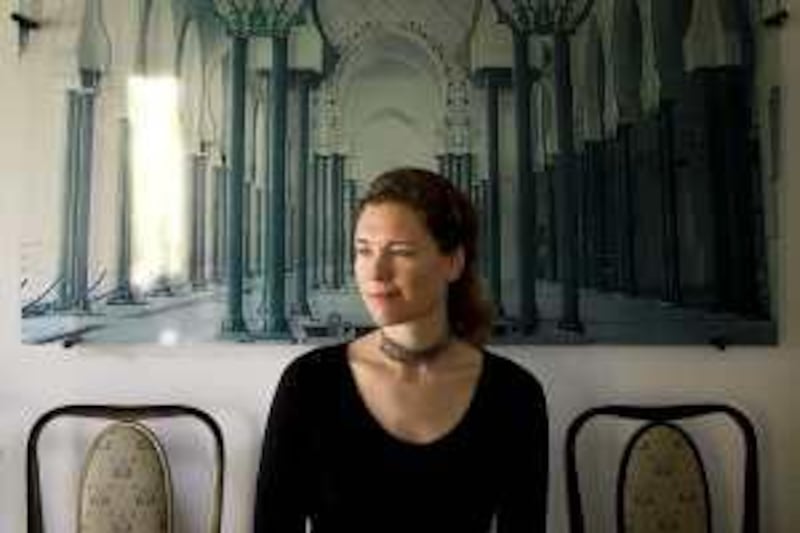ABU DHABI // When her striking images of the development of the Sheikh Zayed Mosque go on show this weekend, the photographer Genoveva Kriechbaum will have particular reason to be grateful. Last year her computer drive failed, apparently taking with it a collection of photographs of the mosque taken between 2003 and 2007, a period during which the building was transformed. It was only after the intervention of the police in the UAE that 95 per cent of the images were recovered, thanks to an innovative piece of detective work.
This Friday, the exclusive pictures she captured - initially intended for a college assignment - will be exhibited at Al Ain's newly reopened Jahili Fort, as part of the Classics festival. "The mosque will soon be the centre of the city when the 2030 plan moves towards Dubai. It is a gateway monument," she said. She was given an all-access pass to photograph the mosque during the several phases of its growth from a bare skeleton to a symbolic religious vision. In that time, she has grown to love and admire the Abu Dhabi landmark.
While it was still under construction, she caught some of the vital stages that brought one of the world's largest and most magnificent religious buildings to the UAE. Things looked very different when her computer failed last year. Though based in London, the panicked photographer could find nobody able to help her retrieve the files. So, using her connections as the Austrian ambassador's daughter, she called on the UAE police, who managed to recover the vast majority of the images.
"When you lose something, anything, you can become almost suicidal," she said. "With the pictures, I thought, 'There goes a phase of my life'. Now I try to back up, and make copies." When Ms Kriechbaum started the project, she had a three-megapixel Sony Cyber-shot - the latest thing in 2003 - and stuck with it, in spite of regular advances in the technology of digital photography. "These are pictures you will never see again," she said. "They look like almost finished pictures, you can almost feel my style. I was not going by any photographic rules, but by what caught my eye."
The photographer - who has spent enough time in the mosque to be able to rival the official guides with stories about the building and its construction - decided to present her pictures on large acrylic panels. "The original idea was to have the photos in copper. I knew they needed to be frameless," she said. "The acrylic was an accident. I found a piece and thought, why not? It was new and transcendent."
The pictures are for sale, and some have already gone, largely to a western audience - although Emiratis have been showing some cautious interest. "I wanted to sell, but since I was at ArtParis, when people came over and asked about the pictures, I became protective." Although she is willing to cater for an international audience, "it makes sense to keep at least one collection here," she said. During the time she spent at the mosque, Ms Kriechbaum, a Christian, fell in love with its spirituality.
"It is not a threatening tourist site, but it's clean and spiritual," she said. "You can see what Sheikh Zayed invested; he gave the money back." asafdar@thenational.ae






